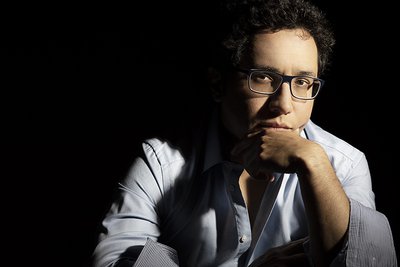1 Jun 2018
MILE Alumni Profiles: Miguel Rodriguez Cuadros
A trade lawyer in the private sector, Miguel Rodriguez Cuadros has worked for a number of multinational companies in Switzerland and Germany since graduation. In this interview he traces his professional journey and talks about the challenges of the new era of globalisation.
Where are you currently based and what is your work?
I am living in Lucerne, Switzerland and working as a Senior Trade Compliance Officer for the EMEA region at Johnson & Johnson in Zug. I am supporting the Logistic and Transport Department on trade compliance and customs topics and projects.
It’s six years since you graduated. Can you outline your career path since then?
My interest has remained focused on gaining more cross-sector experience and diversifying my knowledge of supply chains. After graduating from MILE 12, I joined different sectors, for example: tax consultancy, agrochemical, pharmaceutical, textile, automotive, jewellery and consumer goods. Before joining the MILE programme, I was in the logistic and consultancy sector.
During my career since the MILE I have supported export and embargo management, customs projects related to digitalization, CKD/SKD production in China and Russia, customs process management, KPIs, stakeholder management and the implementation of free trade agreements and HS Classification in the ASEAN and LATAM region.
Your work is in the private sector. How would you describe the relationship between the WTO and the private sector?
I think that the WTO is currently paying more attention to multinational companies (MNC), especially how they define and use new value chains, tools and technology to become more effective and innovative in times where a new era of globalisation is proving to be disruptive. For example, the consumer goods sector and fashion retailers can take an idea and turn it into a trend in just weeks. Product life cycles have become shorter and many companies are using technology to produce built-to-order goods without sacrificing economies of scale.
In recent years, the WTO has become more interested in following the pace of the private sector. As an example, we have the Trade Facilitation Agreement (in force since 2017), which helped simplify the import-export process. This certainly supports the free trade of goods and services, but governments now must ensure that free trade benefits are distributed widely and help those displaced by free trade and digital globalisation.
We are entering a new era of globalisation where digital supply chains will be implemented, but they will still have an impact on employment and inequality, if the free trade benefits are not better distributed.
You had extensive work experience before joining the MILE. What was the attraction of the programme for you?
The MILE gave me the opportunity to analyse trade and customs topics on a macro level, i.e. multilateral and plurilateral agreements (e.g. SPS, TBT, Subsidies Agreement). The programme complemented my knowledge of international taxation. In fact, my MILE thesis focused on Valued Added Tax and National Treatment.
What did you enjoy most/least about the programme?
I enjoyed the Moot Court, the trip to the WTO in Geneva, the ski trip, the University of Bern, Bern (especially in summer and autumn) and of course making new friends from Canada, Peru, Mexico, India, Japan, China, etc.
How do you stay in touch with the WTI?
Mostly by visiting the WTI website and through people that are working or studying there. Giving talks about supply chain and customs management is also a good way to keep myself in the loop.
Further info


